Many of us think ‘school’ is for kids and academics. Here is why we might want to go back there to recalibrate our brains from time to time. It is a lot of fun!
The Simplification Centre (www.simplificationcentre.org.uk) organises the Information Design Summer School every year. I was very lucky to attend it this summer in Bath. Through the academic theories and technical topics the programme covered, my experience at the summer school has been translated into the following two thoughts:
- We can all benefit from information design thinking
- Understanding our own practice is important for us to evolve.
Here is why I think information design goes beyond the field of design and how we can all benefit from an opportunity like this summer school offers.
INFORMATION DESIGN THINKING IS FOR EVERYONE
A very detailed shopping list went viral a few months ago. It was created by a wife who suffered an ‘epic fail’ when she sent her husband to do grocery shopping for the first time. Her list is very well organised – clear typographic hierarchies accompanied by the illustrations showing how each item should (or should not) look like. To the original post, one twitter user responded: ‘You deserve Nobel prize for peace!! 30% of the fights between married couples are over ”
It is a brilliant example showing how information design thinking is part of us and how we all benefit from it when good communication is established. This is especially the case in our professional lives.
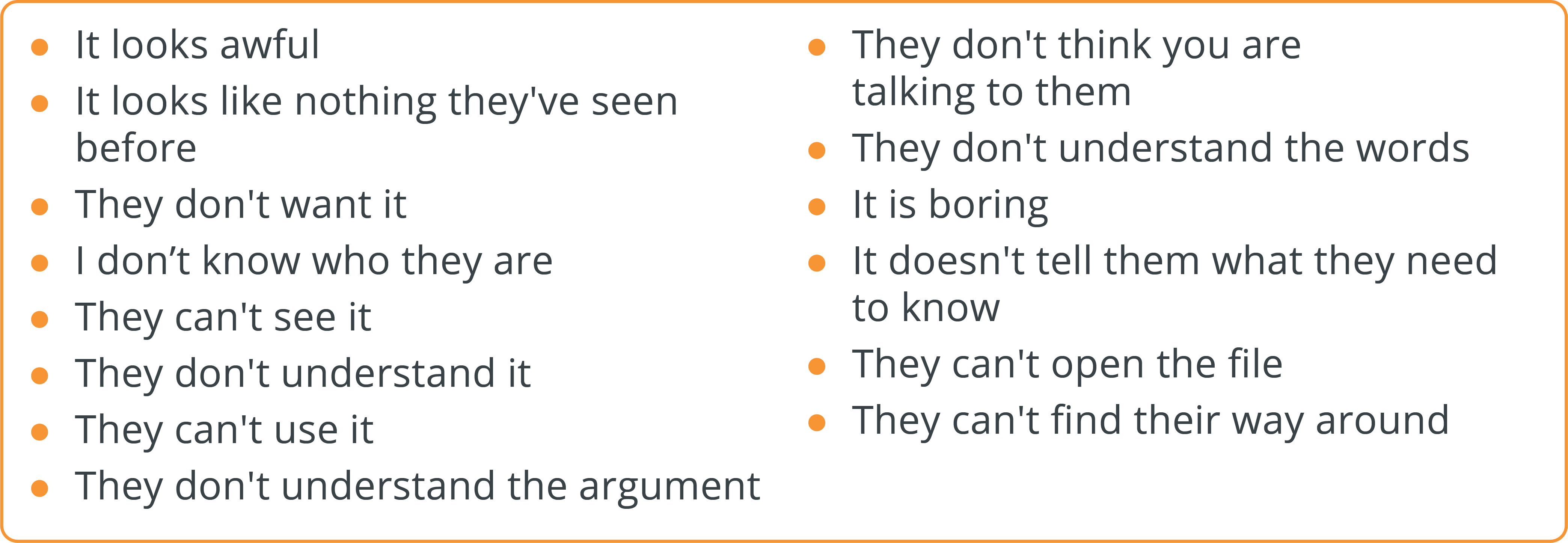
In a project involving complex information, we all encounter one or more of these problems listed above as clients, writers, designers, or any other experts. Clients provide information they wish to communicate. It needs to be clear and well organised. Writers and designers provide text and graphics to communicate the information effectively. So we all deal with information design challenges within each of our roles and this is why, I think, information design thinking can benefit not only the designers but all of us who deal with complex information professionally.
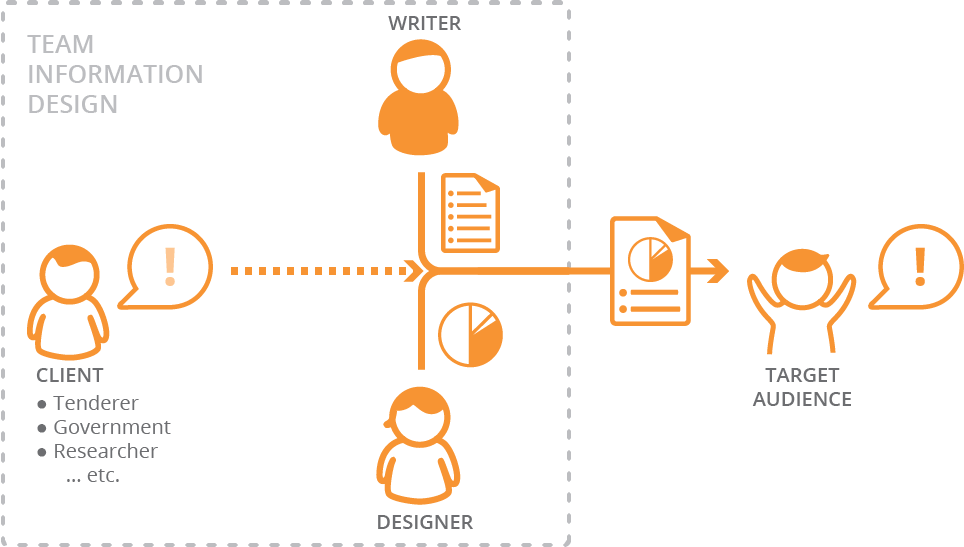
UNDERSTANDING OUR OWN PRACTICE IS IMPORTANT
I am going to refer to one of the papers by the Jenny Waller of the Simplification Centre (www.simplificationcentre.org.uk/downloads/papers/SC12-ProfessionalisingComms.pdf) to illustrate how we all can benefit from reflecting our own practice.
The paper points out that professionalism is a complex mix of knowledge and skills, and refers to the three types of professional knowledge identified by Donald Schön (The Reflective Practitioner: How professionals think in action. London: Temple Smith (1983))
- Abstract theory (=Theoretical Knowledge) Based on rational, scientific principles found in academic disciplines
- Applied theory (= Applied Knowledge) About how abstract theory applies in specialist areas
- Professional skills Tacit knowledge relating to how to get the job done in the ‘messy’ real world.
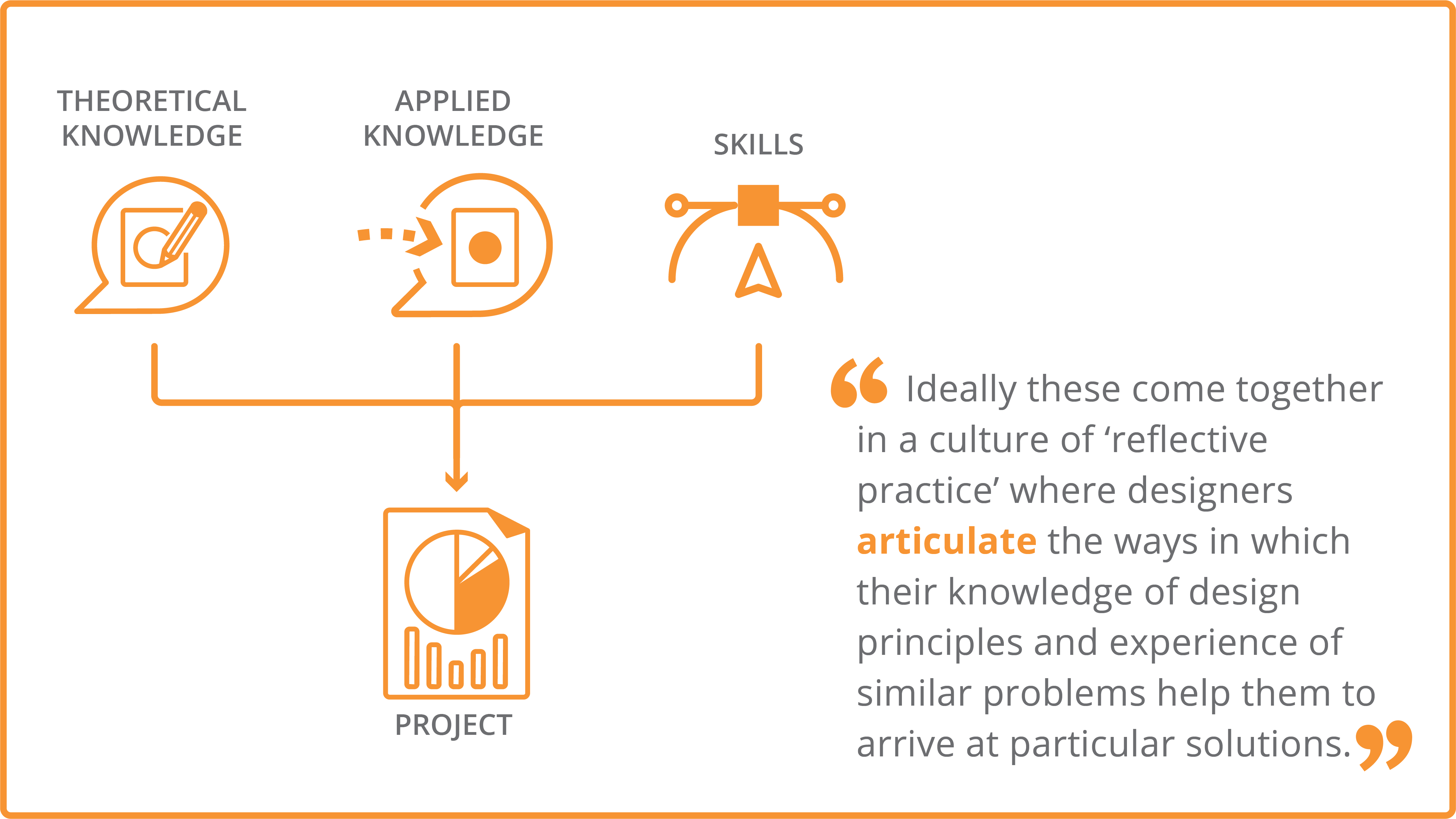
In the field of design, and perhaps this is also true with communications, not everything can be explained theoretically or proved quantitatively as our tacit knowledge plays an important role in design solutions.
And yet, it is beneficial to think over the way in which we do things and try to understand why certain ways work and others do not. Academic research and theories provide tools and language to do so. It is important because it will help us apply and adapt the solutions in new challenges and acknowledge it when our solutions are out of date and we need to go ‘out of the box’.
SUMMER SCHOOL
To me, the summer school really reflected the two points mentioned in my introduction. The diversity of participants is testimony to the first point. We were all from different fields working all over the world. In addition to lectures and group work, projects shared by my classmates were inspiring and stimulating.. It was really a fun group. We absolutely had a great time and I am sure we will keep in touch.
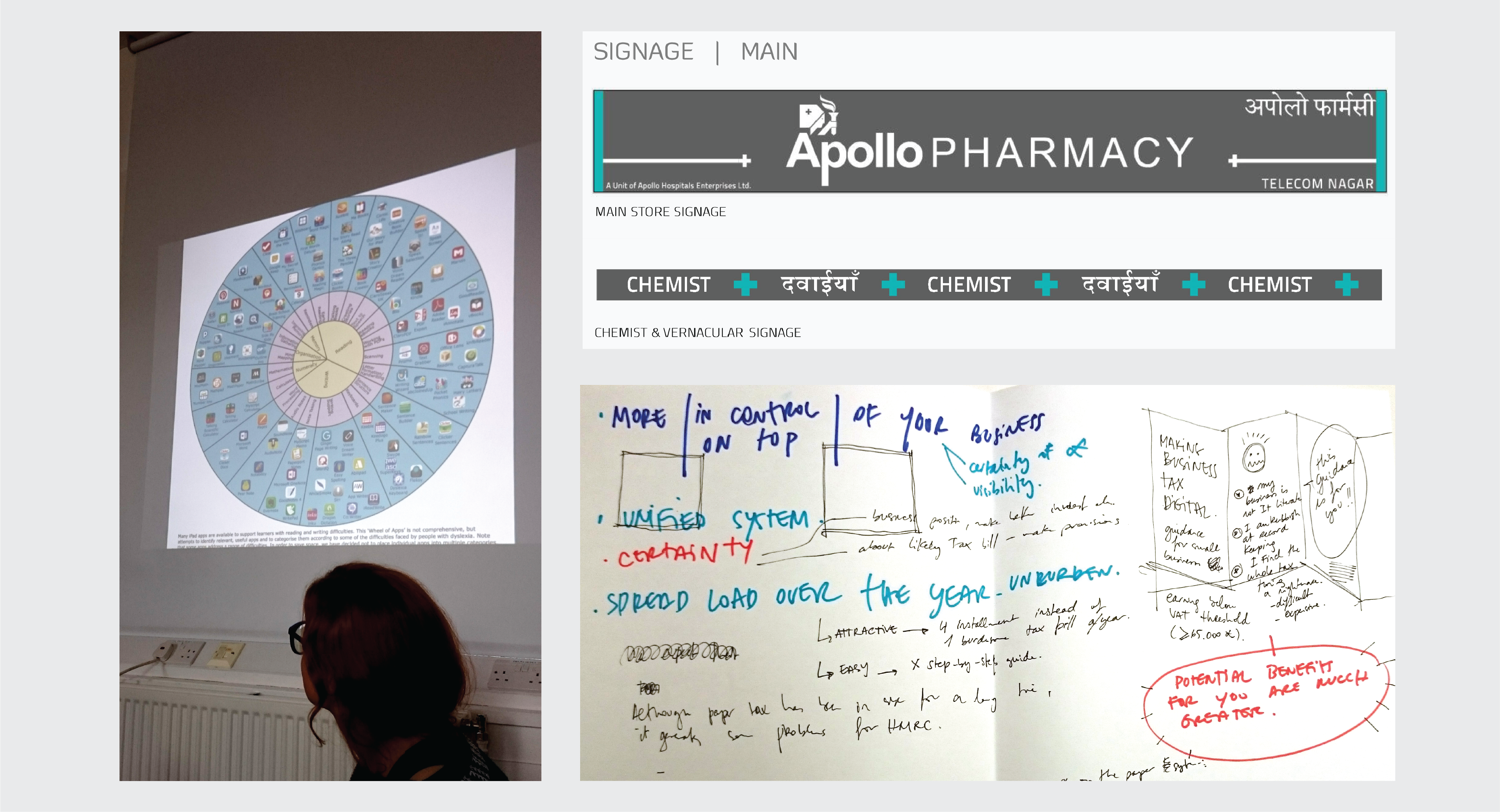
As to the second point, the programme detail posted on the Simplification Centre’s website speaks for itself: www.simplificationcentre.org.uk/events/schools/. It was a wonderful, one-week long brain boot camp beneficial not only for designers but also for whomever keen to explore ways to communicate better.
Here lastly, going back to the list of statements – it is part of the following diagram showing where we might find some clues to answer the challenges we face. Information design issues are diverse and there are many places we can look into.
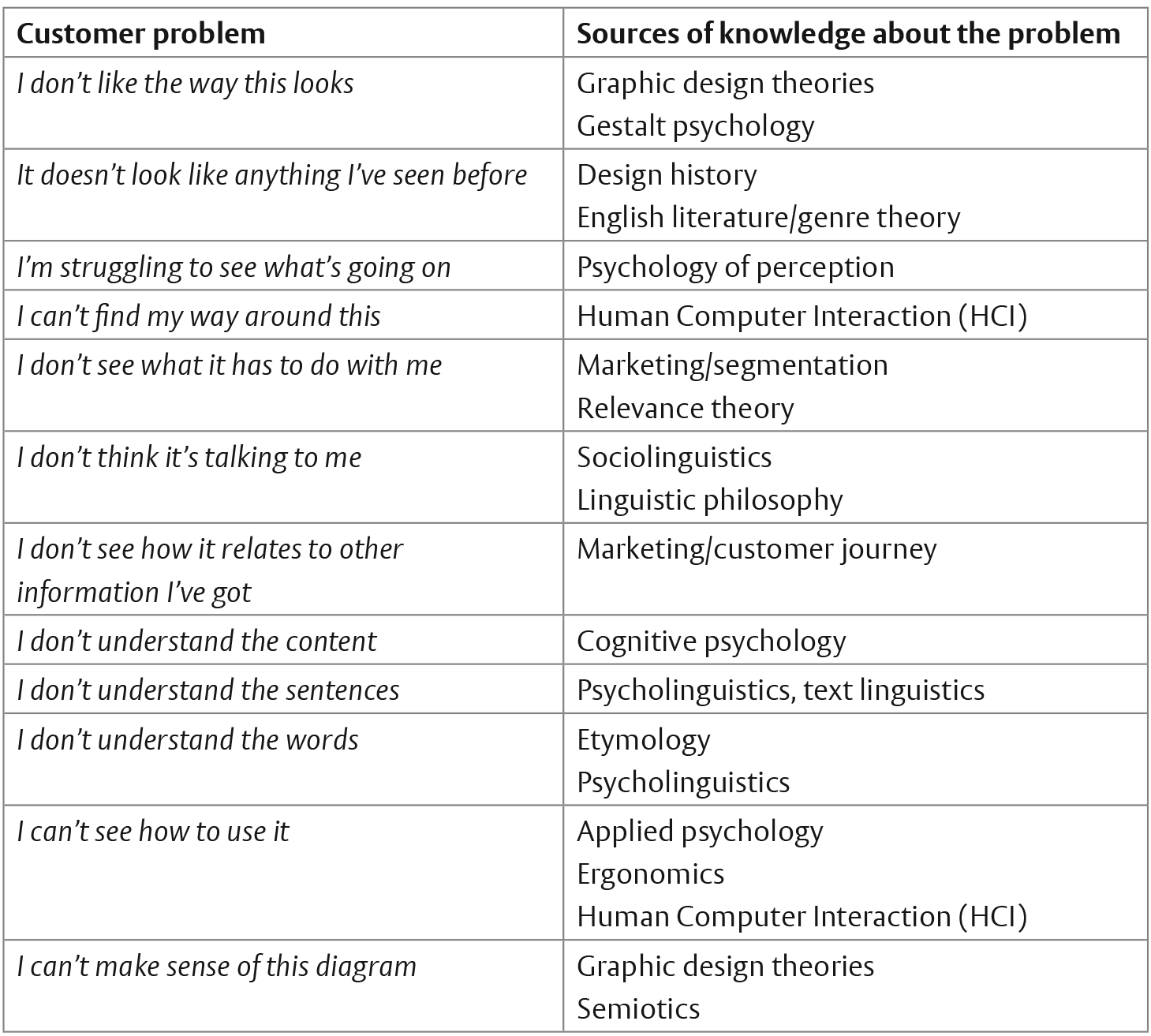
Links
www.simplificationcentre.org.uk/resources/technical-papers/
www.simplificationcentre.org.uk/resources/books-we-recommend/
